#God-begot
Explore tagged Tumblr posts
Text
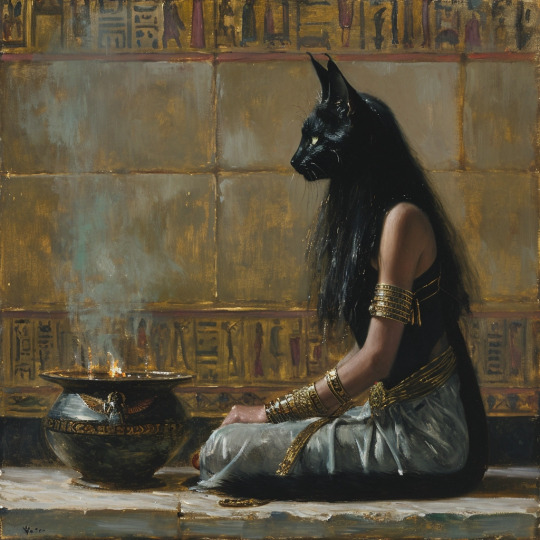
HYMN TO THE GODDESS SEKHMET-BASTET from the Temple of the Hathor at Dendera. (cfr. Dendera III 184-185)
Sekhmet-Bastet, She Who has Power over the host of beings, Sekhmet the Daughter of the Great God Ra, the Brilliant One, the Powerful One, the Fierce One, the Shining One, the Appeased Lady of Offerings, the Lady of Transformations on the forehead of Ra Who begot Her, the Only Uraeus of many faces Who overthrows or Who gives Life to him who is under Her dominion, Her Divine Emissaries act in accordance with what She says
This is a time for reflection and contemplation of Sekhmet, the fierce Fire Goddess; with prayers that the benevolent face of Bastet will come forth and protect those in need.
“Bastet” by Emile Corsi, 1877
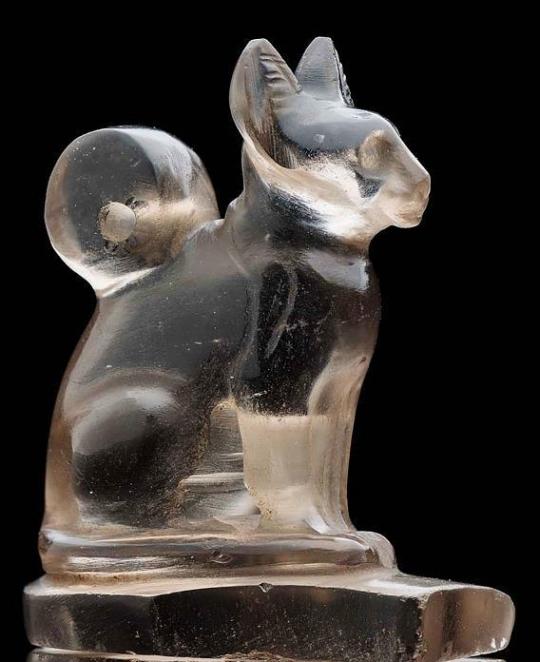
Rock crystal statuette of the goddess Bastet in her form of sacred cat
984 notes
·
View notes
Text
Dionysus 🐆
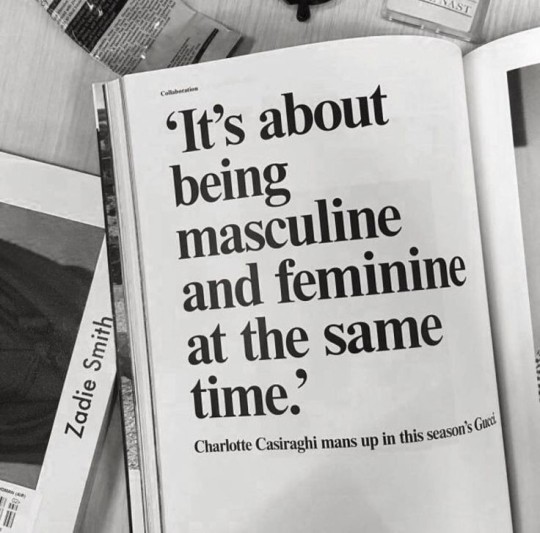



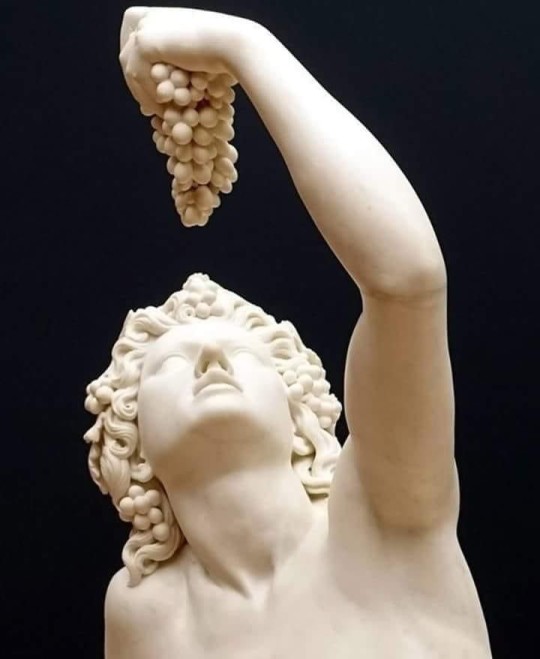
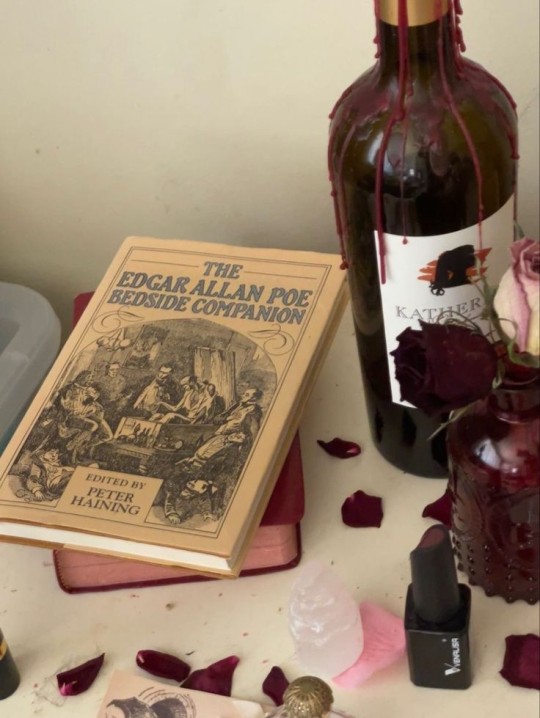



"Come, blessed Dionysos, various-named, bull-faced, begot from thunder, Bakkhos (Bacchus) famed. Bassaros God, of universal might, whom swords and blood and sacred rage delight: in heaven rejoicing, mad, loud-sounding God, furious inspirer, bearer of the rod: by Gods revered, who dwellest with humankind, propitious come, with much rejoicing mind."
#dionysus . ۫ ꣑ৎ .#offerings . ۫ ꣑ৎ .#hellenism#helpol#polytheism#dionysus#dionysus deity#mikhail's offerings#offerings#🍇 — dionysus
123 notes
·
View notes
Text

From Rejected To Redeemed
“Salmon begot Boaz by Rahab, Boaz begot Obed by Ruth, Obed begot Jesse.” — Matthew 1:5 (NKJV)
If you’re looking for a reason to believe God can use your life, your story, your name, look no further than Ruth. She was a Moabite. By law, she was not even allowed to step into the assembly of God’s people. “An Ammonite or Moabite shall not enter the assembly of the Lord… even to the tenth generation” (Deuteronomy 23:3 NKJV). That door was not just shut, it was locked, barred, and sealed.
But when man says no, God still has the final say. He is “He who has the key… who opens and no one shuts, and shuts and no one opens” (Revelation 3:7 NKJV). What God opens, no law, no person, no generational curse can close.
Against every cultural, religious, and legal expectation, Ruth married Boaz, a wealthy, respected Jewish man. The odds were less than zero, but heaven doesn’t deal in odds, Heaven deals in purpose. And from this unlikely union came Obed. From Obed came Jesse. From Jesse came David. And generations later, from that same bloodline, came Jesus Christ — the Redeemer of the world. God used a Gentile outsider to bring forth the Savior.
So let this hit you in your spirit: God is not limited by where you come from, what you’ve done, or what others have said you can never be. Your name might not be respected, your past might not be clean, but the God who rewrote Ruth’s story is still writing stories today.
Jesus said, “The things which are impossible with men are possible with God” (Luke 18v27 NKJV). Don’t let closed doors define your future. Don’t let old systems dictate your destiny. God’s hand on your life is stronger than any label ever placed on you. Your faith today can birth fruit for generations and your obedience now can set a legacy in motion that blesses not just your children, but your children’s children.
God told Abraham, “I will bless you… and you shall be a blessing… and in you all the families of the earth shall be blessed” (Genesis 12:2–3 NKJV). That blessing still flows through the faithful and that means it can flow through you.
So don’t just live for the moment, live for the legacy. You are not just surviving history, you are building inheritance. Your best is not behind you, it’s still unfolding.
#Christian living#Faith walk#god#jesus#Christ#Holy Spirit#Bible#scripture#christianity#faith#prayer#devotional#daily devotional
38 notes
·
View notes
Text
cephalus and Procris get a happy ending?????????? maybe???

we all know the story of Cephalus as one with a sad af ending, where he accidentally killed his love after finally being free from Eos. but I stumbled upon a strange ending after that by Lembus "The god told Cephalus, when he was consulting the oracle about children, to have sexual intercourse with whomever he should encounter first. He met a bear and through intercourse with the bear (arctus), he begot a woman, by whom it is said that Arceisius was appropriately named" -Heraclides Lembus, On Constitutions HMMMMMMM A BEAR HUH GEEE it kinda REMINDS me of how a different god Did bear things "She chose to occupy herself with wild-beasts in the mountains together with Artemis, and, when she was seduced by Zeus, continued some time undetected by the goddess, but afterwards, when she was already with child, was seen by her bathing and so discovered. Upon this, the goddess was enraged and changed her into a beast. Thus she became a bear and gave birth to a son called Arcas" -Hesiod HMMHMM HMMMM goddess of the hunt sure is connected to bears. but its not like she would be connected to the cephalus/procris myth-
"When Diana saw her, she said to her : ‘virgins hunt with me, but you are not a virgin, leave my company.’ Procris revealed to her her misfortune and told her that she had been deceived by Aurora [Eos the Dawn]. Diana, moved by pity, gave her a javelin which no one could avoid, and the dog Laelaps which no wild beast could escape, and bade her go contend with Cephalus. With her hair cut, and in young man's attire, by the will of Diana [Artemis], she came to Cephalus and challenged him, and surpassed him in the hunt. When Cephalus saw that javelin and Dog were so irresistible, he asked the stranger to sell them to him, not knowing she was his wife. She refused. He promised her also a share in his kingdom [of Phokis]; she still refused. ‘But if,’ she said, ‘you really continue to want this, grant me what boys are won to grant.’ Inflamed by desire for the javelin and the Dog, he promised he would. When they had come into the bed-chamber, Procris took off her tunic and showed that she was a woman and his wife. Cephalus took the gifts and came again into her favour." -Pseudo-Hyginus, Fabulae
wow Procris uses a disguise> "devoted to the arts Diana [Artemis] loved . . . [After begging for Prokris' forgiveness she returned to him and] she gave me [Kephalos] too, as though herself were gift of small account, a hound [Lailaps] her own Cynthia [Artemis] had given her, saying ‘He'll outrun them all.’ The javelin too she gave me which you see." -Ovid, Metamorphoses 7. 732 ff (trans. Melville) (Roman epic C1st B.C. to C1st A.D.) :
HMMMMMMMMMMMMMM wowie thats CRAZY, right she really gained favor with artemis/ diana just by being sad af
I THINK lembus was trying to make a connection of the bear BEING procris somehow returned by artemis/diana. the bear connection to the goddess, the fact that the bear never gets a name but the child birthed from the union IS. and in other sources THAT CHILD IS THE CHILD OF CEPHELUS AND PROCRIS "Procris. By her Cephalus had a son Arcesius, whose son was Laertes, Ulysses' father" -Hyginus, Fabulae
ladies and gentleman and that person over there I think the bear and Procris might be the same. i think the god is artemis/diana. and I think I might be in denial about a very sad story. this is my interpretation of Lembus's work.
happy ending jumpscare
#greek mythology#ancient greece#Heraclides Lembus#On Constitutions#cephalus and procris#cephalus#procris#ovid#artemis#diana#callisto#eos#hyginus#fabulae#hesiod
36 notes
·
View notes
Note
"The god told Cephalus, when he was consulting the oracle about children, to have sexual intercourse with whomever he should encounter first. He met a bear and through intercourse with the bear (arctus), he begot a woman, by whom it is said that Arceisius(Laertes dad) was appropriately named" -Heraclides Lembus, On Constitutions YOUR PART BEAR!??????????????
I'M NOT PART BEAR-
#epic odysseus#odysseus#epic the musical#odysseus rp#the odyssey#dc x epic#dc rp#only in gotham#dc rp blog#crossover rp
23 notes
·
View notes
Text
[All excerpts used are from E.P Coleridge's translation]
Okay, I've talked about the romantic dynamic between Iphigenia and Achilles in a less popular tradition (compared to the tradition that's all farce and nothing but deception), but I also like their dynamic in Iphigenia in Aulis because I feel like it, to some extent, has to do with the way Iphigenia is both humanized and objectified by the context that's imposed on her. I usually see their relationship being used to make a point about Achilles, but I think it's possible to make a point about Iphigenia as well.
Achilles is willing to cooperate with Clytemnestra from the beginning after they both discover Agamemnon's plan, and he doesn't need to be convinced to help. But they don't have the same goal, not really. Clytemnestra wants to save Iphigenia, but Achilles doesn't seem to be thinking about Iphigenia specifically. In fact, he seems to be thinking about his honor. When Clytemnestra begs Achilles to help her, he responds:
Achilles My proud spirit is stirred to range aloft, butI have learned to grieve in misfortune [920] and rejoice in high prosperity with equal moderation. For these are the men who can count on ordering all their life rightly by wisdom's rules. True, there are cases where it is pleasant not to be too wise, [925] but there are others, where some store of wisdom helps. Brought up in godly Chiron's halls myself, I learned to keep a single heart; and provided the Atridae lead well, I will obey them; but when they cease from that, no more will I obey; [930] no, but here and in Troy I will show the freedom of my nature, and, as far as in me lies, do honor to Ares with my spear. You, lady, who have suffered so cruelly from your nearest and dearest, I will, by every effort in a young man's power, set right, investing you with that amount of pity [935] and never shall your daughter, after being once called my bride, die by her father's hand; for I will not lend myself to your husband's subtle tricks; no! for it will be my name that kills your child, although it does not wield the sword. Your own husband [940] is the actual cause, but I shall no longer be guiltless, if, because of me and my marriage, this maiden perishes, she that has suffered past endurance and been the victim of affronts most strangely undeserved.
So am I made the poorest wretch in Argos; [945] I a thing of nothing, and Menelaus counting for a man! No son of Peleus I, but the issue of a vengeful fiend, if my name shall serve your husband for the murder. No! by Nereus, who begot my mother Thetis, in his home amid the flowing waves, [950] never shall king Agamemnon touch your daughter, no! not even to the laying of a finger-tip upon her robe; or Sipylus, that frontier town of barbarism, the cradle of those chieftains' line, will be henceforth a city indeed, while Phthia's name will nowhere find mention. [955] Calchas, the seer, shall rue beginning the sacrifice with his barley-meal and lustral water. Why, what is a seer? A man who with luck tells the truth sometimes, with frequent falsehoods, but when his luck deserts him, collapses then and there. It is not to secure a bride that I have spoken thus—there are maids unnumbered [960] eager to have my love—no! but king Agamemnon has put an insult on me; he should have asked my leave to use my name as a means to catch the child, for it was I chiefly who induced Clytemnestra to betroth her daughter to me; [965] I would had yielded this to Hellas, if that was where our going to Ilium broke down; I would never have refused to further my fellow soldiers' common interest. But as it is, I am as nothing in the eyes of those chieftains, and little they care of treating me well or ill. [970] My sword shall soon know if any one is to snatch your daughter from me, for then will I make it reek with the bloody stains of slaughter, before it reach Phrygia. Calm yourself then; as a god in his might I appeared to you, without being so, but such will I show myself for all that.
That is, Achilles openly admits that if Agamemnon had asked to use his name and justified it as necessary for Troy to be taken, Achilles would have accepted. He would have been willing to deceive Iphigenia, an innocent maiden who was eager to marry, if it meant that he would go to Troy to achieve his beloved glory. He himself makes this clear in “he should have asked my leave to use my name as a means to catch the child, for it was I chiefly who induced Clytemnestra to betroth her daughter to me; [965] I would have yielded this to Hellas, if that was where our going to Ilium broke down; I would never have refused to further my fellow soldiers' common interest”. Achilles, in literature, is usually presented more as strength than cunning and, in fact, tends to oppose deception. But the Achilles of Iphigenia in Aulis, when he says that he would collaborate with this cunning plan, immediately argues that the reason is that he would be motivated by “my fellow soldiers' common interest”. Sure, one might think that Achilles doesn't seem like someone who would do something he doesn't want to do for the sake of his soldiers, but this Achilles is young and inexperienced (see how he interacts with Clytemnestra in their first meeting, he is even shy to be alone with a woman). He's not the same Achilles we see in The Iliad, an adult in the last year of the war. The Iliadic Achilles is already established in the army, the Euripidean one isn’t and he needs to secure his position. I can believe that he would actively participate in this deception.
Achilles isn’t helping Clytemnestra because he would never sacrifice an innocent maiden, he is helping Clytemnestra because he has been insulted —“Agamemnon has put an insult on me.” It isn’t the aggression directed at Iphigenia, but the insult directed at him that angers him deeply. Because by disregarding Achilles’ consent to the plan, he feels as if he is ignored, as if he doesn’t matter enough to be considered, as if he has no identity at all: “So am I made the poorest wretch in Argos; [945] I a thing of nothing, and Menelaus counting for a man! No son of Peleus I, but the issue of a vengeful fiend, if my name shall serve your husband for the murder.” And if there is one thing that Achilles values, it’s his identity. For it is this identity that brings with it his glorious and famous lineage (so much so that, when denying his identity to himself, he says “no son of Peleus”), that makes him the infamous son of Thetis the Nereid, that makes him a prince, that makes him a descendant of the mighty Zeus, that makes him a pupil of the wise Chiron, that makes him the prophesied warrior. The honor that he values so much is linked to his identity as a person because the achievement of this honor has as its reward the immortalization of Achilles in future generations. A name — one of the strongest identity characteristics — that will be remembered, as well as what comes with it. And what does Agamemnon do when he uses it like this, without considering how he might feel? He transforms Achilles into a tool, a passive object.
But while Achilles is offended by the idea of him as a person being disregarded and instead used as a tool, he unconsciously does something similar with Iphigenia. To him, she initially has no identity. Throughout the play, before the end, several characters interact with each other, but Achilles and Iphigenia aren’t one of these pairs. He hasn’t spoken to her, he doesn’t know her. To him, there is no “Iphigenia the person” there is “Iphigenia the tool in the plan”. He only knows her in the capacity of a passive object, and in this imagery there isn’t enough in Iphigenia to be a motivator for Achilles any more than his wounded honor is. Even when he talks about the sacrifice, Achilles talks about how it affects him “never shall your daughter, after being once called my bride, die by her father's hand; for I will not lend myself to your husband's subtle tricks; no! for it will be my name that kills your child, although it does not wield the sword”. Even when it comes to Iphigenia, Achilles seems to be motivated primarily by himself. Iphigenia is almost like a footnote, just a motivating object of his narrative.
In contrast, when Iphigenia refers to Achilles, she is seeing him as a person. More specifically, she sees him as a potential fiancé, even after she knows about the deception, so much so that she refers to the plan as “our marriage.” One could perhaps say that Iphigenia also doesn’t attribute an identity to him, since she sees him only in the role of this scenario (i.e., fiancé) in the same way that Achilles saw her as “bride”, but I don’t think that’s the case. She is embarrassed by the possibility of seeing Achilles, and why would she be embarrassed if it weren’t because she fears his reaction? And for Iphigenia to fear Achilles’ reaction to the discovery that Iphigenia genuinely thought they were going to get married is because she considered him enough of a person to assume that he might have conflicting feelings about the situation. Iphigenia could have just thought “he was deceived too” and that was that, but implicitly she also thought about how the deception would affect him:
Iphigenia calling into the tent. [1340] Open the tent-door to me, servants, that I may hide myself Clytemnestra Why seek to escape, my child? Iphigenia I am ashamed to face Achilles. Clytemnestra But why? Iphigenia The luckless ending to our marriage causes me to feel abashed.
At the end of the play, however, Iphigenia subverts the passive position imposed upon her. She accepts being sacrificed and, in a way, does so in an attempt to regain her agency. Rather than it being something that was done to her, it’s something that she did. Speaking about her decision, she says:
Iphigenia Mother, hear me while I speak, for I see that you are angry with your husband [1370] to no purpose; it is hard for us to persist in impossibilities. Our thanks are due to this stranger for his ready help; but you must also see to it that he is not reproached by the army, leaving us no better off and himself involved in trouble. Listen, mother; hear what thoughts have passed across my mind. [1375] I am resolved to die; and this I want to do with honor, dismissing from me what is mean. Towards this now, mother turn your thoughts, and with me weigh how well I speak; to me the whole of mighty Hellas looks; on me the passage over the sea depends; on me the sack of Troy; [1380] and in my power it lies to check henceforth barbarian raids on happy Hellas, if ever in the days to come they seek to seize her women, when once they have atoned by death for the violation of Helen's marriage by Paris. All this deliverance will my death insure, and my fame for setting Hellas free will be a happy one. [1385] Besides, I have no right at all to cling too fondly to my life; for you did not bear me for myself alone, but as a public blessing to all Hellas. What! shall countless warriors, armed with shields, those myriads sitting at the oar, find courage to attack the foe and die for Hellas, because their fatherland is wronged, [1390] and my one life prevent all this? What kind of justice is that? could I find a word in answer? Now let us turn to that other point. It is not right that this man should enter into battle with all Argos or be slain for a woman's sake. Better a single man should see the light than ten thousand women. [1395] If Artemis has decided to take my body, am I, a mortal, to thwart the goddess? no, that is impossible. I give my body to Hellas; sacrifice it and make an utter end of Troy. This is my enduring monument; marriage, motherhood, and fame—all these is it to me. [1400] And it is right, mother, that Hellenes should rule barbarians, but not barbarians Hellenes, those being slaves, while these are free.
So Iphigenia is actively trying to gain an active role — I am resolved to die; and this I want to do with honor, dismissing from me what is mean“. She doesn’t want to be Iphigenia, the object, she wants to be Iphigenia, a person with an identity. In the same way that soldiers are motivated to fight out of pride in their Greek identity, Iphigenia is motivated to sacrifice herself out of pride in her Greek identity — “and my fame for setting Hellas free will be a happy one“. Not only that, but her action is motivated by glory to some extent, in a similar way to how Achilles himself is motivated — “I give my body to Hellas; sacrifice it and make an utter end of Troy. This is my enduring monument; marriage, motherhood, and fame—all these is it to me“. In the same way that Achilles will have his identity immortalized, so will Iphigenia, and she knows this when she says “to me the whole of mighty Hellas looks; on me the passage over the sea depends; on me the sack of Troy”. By equating her voluntary sacrifice with the sacrifice of soldiers who are willing to die in the field, Iphigenia regains her autonomy by getting closer to their imaginary. Indirectly, Iphigenia secures her identity in a way that makes her close to Achilles, since, after all, he also accepted death.
And it’s in this identification that Achilles begins to see that Iphigenia isn’t just someone he needs to protect, but someone who has desires of her own. Desires that he admires, in fact. He didn’t admire her before because, before, Achilles didn’t know her…but now that he feels he knows her, he thinks she is worthy of it. Iphigenia, then, takes on a humanized role in his mind:
Achilles Daughter of Agamemnon! some god was bent [1405] on blessing me, if I could have won you for my wife. In you I consider Hellas happy, and you in Hellas; for this that you have said is good and worthy of your fatherland; since you, abandonIng a strife with heavenly powers, which are too strong for you, have fairly weighed advantages and needs. [1410] But now that I have looked into your noble nature, I feel still more a fond desire to win you for my bride. Look to it; for I want to serve you and receive you in my halls; and, Thetis be my witness, how I grieve to think I shall not save your life by doing battle with the Danaids. [1415] Reflect, I say; a dreadful ill is death. Iphigenia This I say, without regard to anyone. Enough that the daughter of Tyndareus is causing wars and bloodshed by her beauty; then be not slain yourself, stranger, nor seek to slay another on my account; [1420] but let me, if I can, save Hellas. Achilles Heroic spirit! I can say no more to this, since you are so minded; for yours is a noble resolve; why should not one speak the truth? Yet I will speak, for you will perhaps change your mind; [1425] [that you may know then what my offer is,] I will go and place these arms of mine near the altar, resolved not to permit your death but to prevent; for brave as you are at sight of the knife held at your throat, you will soon avail yourself of what I said. [1430] So I will not let you perish through any thoughtlessness of yours, but will go to the goddess with these arms and await your arrival there. Exit Achilles.
Achilles describes her as someone who has a “noble nature” and a “heroic spirit,” thus acknowledging Iphigenia’s autonomy. For Achilles, Iphigenia is “noble” and “heroic” because she chooses to sacrifice herself for the sake of the Greeks, something that requires courage from her, and if there is anything Achilles admires, it’s this. She takes an action worthy of recognition. Iphigenia is no longer passive, she is active, and Achilles’ attitude changes to match. Throughout the play, whenever he talks about saving Iphigenia, he negotiates this with Clytemnestra. Before Iphigenia declares that she will be sacrificed, Achilles is actually talking to Clytemnestra and in fact doesn’t even address Iphigenia directly, even though she is there. After her declaration, however, even though Clytemnestra was present and disapproved of Iphigenia's thinking, Achilles addresses Iphigenia (and not Clytemnestra) directly, and although he tries to convince her to give up (claiming that he would try to protect her), he still respects her decision. In fact, he puts the decision in her hands by saying that he will wait for Iphigenia to decide whether or not she wants him to intervene. Thus, Achilles acknowledges Iphigenia as not only someone with an identity, but someone with desires that he cannot override [note: I obviously don’t think that Clytemnestra's disapproval of this is the same as her overriding Iphigenia's desires. Since Achilles isn’t intimate with Iphigenia, it’s certainly much easier for him to accept her decision to die than it is for Clytemnestra, the mother who loves her immensely. But Clytemnestra's taking revenge, however, was overriding what Iphigenia would want].
Of course, one could argue that Achilles accepts Iphigenia's decision because her being sacrificed is to his advantage, as it will allow him to go to Troy. But I disagree. After all, he literally offers to try to prevent this, if Iphigenia so desires. He is willing to go against the will of a goddess, Artemis, and the entire army (as Achilles makes it clear that they tried to stone him for speaking in favor of Clytemnestra and Iphigenia) if Iphigenia wants, and indirectly, he is willing to delay his achievement of glory (since the sacrifice is necessary for him to go to Troy). In fact, Achilles explicitly states that he has come to be seen as someone who is enslaved by marriage. In other words, his reputation has been damaged and he has been viewed in a pejorative manner, but that still doesn’t stop him from offering Iphigenia the option of rebelling against the will of the majority:
Clytemnestra In danger of what, stranger?. Achilles [1350] Of being stoned. Clytemnestra Surely not for trying to save my daughter? Achilles The very reason. Clytemnestra Who would have dared to lay a finger on you? Achilles All the men of Hellas. Clytemnestra Were not your Myrmidon warriors at your side? Achilles They were the first who turned against me. Clytemnestra My child! we are lost, it seems. Achilles They taunted me as the man whom marriage had enslaved. Clytemnestra And what did you answer them? Achilles [1355] Not to kill the one I meant to wed— Clytemnestra Justly so. Achilles The wife her father promised me. Clytemnestra Yes, and sent to fetch from Argos. Achilles But I was overcome by clamorous cries. Clytemnestra Truly the mob is a dire mischief. Achilles But I will help you for all that. Clytemnestra Will you really fight them single-handed? Achilles Do you see these warriors here, carrying my arms? Clytemnestra Bless you for your kind intent! Achilles [1360] Well, I shall be blessed.
Even Achilles’ marriage proposal is different. Previously, he had constantly thought of Iphigenia as a “bride” and had taken the marriage for granted if he could handle the situation. And since Achilles hadn’t even met Iphigenia at the time, his motivation for the marriage wasn’t her per se, but rather to reverse the plan into which he had been unwillingly included. And how can a false marriage be reversed if not by making it genuine? In a way, marrying Iphigenia would also be placing himself as responsible for her, in the ancient view of husbands as responsible for their wives. In this sense, Iphigenia was once again passive. But after her declaration, Achilles, instead of taking the marriage for granted, proposes to her. He leaves the decision to marry Iphigenia up to her—“Reflect, I say; a dreadful ill is death”— and if she doesn’t want it, he will accept. And now he desires Iphigenia as his wife in a genuine way because he recognized in her someone with an admirable personality— “But now that I have looked into your noble nature, I feel still more a fond desire to win you for my bride”. Achilles no longer wants “Iphigenia, a passive object” that he needs to protect if he wants to protect his honor, he wants “Iphigenia, a person with an identity and an active one” because he thinks that having a wife like her would be a blessing — “some god was bent [1405] on blessing me, if I could have won you for my wife”. Achilles even talks about a possible marriage as he serves her in “Look to it; for I want to serve you and receive you in my halls”. She is no longer a symbol of his wounded honor, she is a symbol of glory and if there is one thing young Achilles desires it is glory. She's not a part of the scenery, she's a character.
But Iphigenia chooses to sacrifice herself and Achilles clearly doesn’t contradict her on, as a Messenger actually makes it quite clear that Achilles had an active role in the sacrifice as he spread the water and referred directly to Artemis:
Messenger [1540] Dear mistress, you shall learn all clearly; from the outset will I tell it, unless my memory fails me somewhat and confuses my tongue in its account. As soon as we reached the grove of Artemis, the child of Zeus, and the flowery meadows, [1545] where the Achaean troops were gathered, bringing your daughter with us, at once the Argive army began assembling; but when king Agamemnon saw the maiden on her way to the grove to be sacrificed, he gave one groan, and, turning away his face, let the tears burst [1550] from his eyes, as he held his robe before them. But the maid, standing close by her father, spoke thus: “O my father, here I am; willingly I offer my body for my country and all Hellas, [1555] that you may lead me to the altar of the goddess and sacrifice me, since this is Heaven's ordinance. May good luck be yours for any help that I afford! and may you obtain the victor's gift and come again to the land of your fathers. So then let none of the Argives lay hands on me, [1560] for I will bravely yield my neck without a word.” She spoke; and each man marvelled, as he heard the maiden's brave speech. But in the midst Talthybius stood up, for this was his duty, and bade the army refrain from word or deed; [1565] and Calchas, the seer, drawing a sharp sword from its scabbard laid it in a basket of beaten gold, and crowned the maiden's head. Then the son of Peleus, taking the basket and with it lustral water in his hand, ran round the altar of the goddess [1570] uttering these words: “O Artemis, you child of Zeus, slayer of wild beasts, that wheel your dazzling light amid the gloom, accept this sacrifice which we, the army of the Achaeans and Agamemnon with us, offer to you, pure blood from a beautiful maiden's neck; [1575] and grant us safe sailing for our ships and the sack of Troy's towers by our spears.” Meanwhile the sons of Atreus and all the army stood looking on the ground.
[But the priest, seizing his knife, offered up a prayer and was closely scanning the maiden's throat to see where he should strike. [1580] It was no slight sorrow filled my heart, as I stood by with bowed head; when there was a sudden miracle! Each one of us distinctly heard the sound of a blow, but none saw the spot where the maiden vanished. The priest cried out, and all the army took up the cry [1585] at the sight of a marvel all unlooked for, due to some god's agency, and passing all belief, although it was seen; for there upon the ground lay a deer of immense size, magnificent to see, gasping out her life, with whose blood the altar of the goddess was thoroughly bedewed. [1590] Then spoke Calchas thus—his joy you can imagine—“You captains of this leagued Achaean army, do you see this victim, which the goddess has set before her altar, a mountain-roaming deer? This is more welcome to her by far than the maid, [1595] that she may not defile her altar by shedding noble blood. Gladlyshe has accepted it, and is granting us a prosperous voyage for our attack on Ilium. Therefore take heart, sailors, each man of you, and away to your ships, for today [1600] we must leave the hollow bays of Aulis and cross the Aegean main.” Then, when the sacrifice was wholly burnt to ashes in the blazing flame, he offered such prayers as were fitting, that the army might win return; but Agamemnon sends me to tell you this, [1605] and say what heaven-sent luck is his, and how he has secured undying fame throughout the length of Hellas. Now I was there myself and speak as an eyewitness; without a doubt your child flew away to the gods. A truce then to your sorrowing, and cease to be angry with your husband; [1610] for the gods' ways with man are not what we expect, and those whom they love, they keep safe; yes, for this day has seen your daughter dead and living.
Thus, I genuinely think that Achilles' change in thinking in relation to Iphigenia follows her characterization in the narrative, which changes from passive to active, from a narrative motif to a structured character. This post is, of course, purely my own interpretation, but I feel like Iphigenia is rather unfortunately ignored among the interactions/relationships Achilles has and I don't understand why. I think it's important! Not only is Iphigenia important to Achilles' character, but Achilles is also a narrative element in Iphigenia's character.
30 notes
·
View notes
Text
Vaguely thinking about Timandra, Helen and Klytemnestra again, and the whole THING in how they're all three joined by committing adultery. (And I do think that in going with this, there is more punch to it if it is indeed adultery and everyone leaves with (or invites in) the lover willingly.)
No matter who is first, Helen or Timandra (though Timandra might be first by quite a bit if she should be counted as either the mother of Meges - a participant in the war - or the mother of a daughter who begot... two participants in the war!). Either way, Timandra and Klytemnestra are the ones still in Greece, while Helen leaves it entirely. Timandra doesn't seem to cause any uproar - except of course there must have been SOMETHING, but surviving tradition has nothing for us. Klytemnestra, of course joins herself to Aigisthos while Agamemnon is away, and then when he's dead; Agamemnon gets no real chance to react to this state of affairs.
And then there is three men they leave their husbands for...
Paris and Aigisthos are known as effeminate, and more or less "dominated" by their wife (not literally, of course alas, but lol). Phyleus is called dear to the deathless gods by Hesiod in the Ehoiai. He comes in for the least amount of negative description there, where Aigisthos is explicitly called a "worse mate" for Klytemnestra, though Paris isn't described at all - there's merely the "Helen dishonoured the couch..." line.
(Helen and Klytemnestra sharing some tastes in men lol, they both have some fondness for softness and effeminacy apparently!)
19 notes
·
View notes
Note
Hi barbi! Hope youre well. I saw some of your comments on your frankenstein post about how the monster is like the modern man but the modern man is not the monster? And i think i get what youre saying but i dont totally understand, can you maybe expand on that?
i’m great, thank you for asking! for ease of access, here is the post being referred to. i want to clarify that my comments are less about the book and more about an underlying theme as well as my personal opinions. and also that i was insanely sleep deprived while i was trying to make my point which may be why i didn’t manage to get it across very well.
i resent the use of the word monster in most circumstances. we like to label people monsters when they’ve done something we believe is morally abhorrent. and this act of removing personhood creates a nice little wall that makes us more comfortable in our own actions. it allows us to say things like, she would never do that, she’s not a monster. and then because we act like monster is some sort of new species that we have no relation to, we get to completely disregard that monstrosity is derived from personhood. we get to pretend that you have to be a deranged individual in order to cross that line, and you don’t. there’s no real requirements. anyone can become a monster, and that fact makes us uncomfortable because it means that we could be a monster, under the right circumstances. if you never want to be monstrous, you have to first recognize that because you are human, you are capable at any moment to do something unspeakably terrible, and you have to actively work against that.
adam frankenstein is not a monster. he is a man. in fact, victor chose each part of him very intentionally in an attempt to create the perfect man—tall, strong, fast, beautiful, and functionally immortal. victor only began to confront the implications of his creation once he realized that adam had come to life and wandered off alone. adam, instead of learning from a parent, educates himself by observing other people and reading paradise lost, which tells the myth of creationism. adam identifies with it so strongly that he names himself after the titular character, and he learns that lonely men will be given wives if they ask for them. so he goes to ask god—sorry, victor—to make him a wife. victor, horrified by the soulless husk that his scientific curiosity begot, ends up destroying her instead of bringing her to life, and adam becomes violent.
is this starting to sound familiar? adam frankenstein is the very first pseudo-christian alpha male. adam is not terrifying because he is a monster. adam is terrifying because he is an angry, vengeful man who feels entitled to a woman’s company—a woman who not only doesn’t exist yet but barely even has the potential to—and is capable and willing to inflict great violence on innocent bystanders in order to get what he wants.
my point being: people often say that adam’s first kill is the thing that finally makes him a monster. i disagree. i believe that this is the part of the story in which the caricature of adam’s manhood comes to a head. mary shelley is painting a picture of toxic masculinity, something that clearly has not changed very much at all within the last two centuries. adam is not a monster, he never becomes a monster; he is a man the whole time, and that is the point being made. frankenstein is not a horror story about a monster who kills people. it is a warning about what happens when male entitlement goes unchecked for too long. there is no monster in the story in the same way that there are no monsters in real life, only men. and all men must remain men, because to give in to the temptation to remove their personhood is to absolve oneself of the potential to become terrible.
#doesbthis make sense. sorry#please understand also that i have used the word man to mean humankind more than once here it’s not JUST about men alright. thanks#asks#anon#barbi.lit#frankenstein
13 notes
·
View notes
Text
ooc: Happy Beltane!
Very random things I read about Beltane/May Day I just needed to share because I don’t think they made it into my original post about this subject!
“Babies conceived at Beltane are considered a gift from the gods. They were sometimes referred to as "merry-begots", because the mothers were impregnated during Beltane's merrymaking.”
I thought this was interesting since @forgottenbrigit ‘s feast day is Imbolc which is about 9 months after Beltane AND she’s got her Seer powers!
Additionally, much like on Samhain, the veil between the worlds is very thin! Nothing more really about that besides I love that the youngest & oldest Malconaire girls share that commonality in their feast days! 💚
10 notes
·
View notes
Text
Zanado / ザナド, Shambhala / シャンバラ, and Agartha / アガルタ
Zanado (JP: ザナド; rōmaji: zanado), also known as the Red Canyon, is the site of ruins that the Nabateans once called home in Fire Emblem: Three Houses. This name comes from ザナドゥ (rōmaji: zanadu) Xanadu, more traditionally known as 上都, Shàngdū. Literally meaning "Upper Capital," Shàngdū was the summer capital of China's Yuan dynasty. When it was first constructed, the city was called 開平, Kāipíng; less than a decade later, it would be Kublai Khan who gave it the name we use today. In a century's time, Shàngdū would be abandoned, the people driven off or killed when the Ming dynasty wrested power from Toghon Temür, the last ruler of the Yuan.
Before its collapse, Shàngdū was a great city that even the Western world had heard of. Infamous Venetian explorer Marco Polo had visited during the reign of Kublai Khan. He referred to the city by the name Chandu or Ciandu, and thoroughly recounted the intricate, artistic structure of the city, remarking of rooms gilded and rich with paintings. The city held two palaces—one of marble, one of wicker—as well as a great park containing vast meadows, lovely fountains and brooks, and a plethora of flora and fauna. Three centuries later, the English cleric Samuel Purchas published a work that, for brevity's sake, we'll simply call Purchas his Pilgrimes, which collected descriptions of various locations and religions. Amongst this was a rewording of Marco Polo's account of Shàngdū, which Purchas instead called Xandu.
It was Purchas' documentation that reached English poet Samuel Taylor Coleridge in 1797. He was struck by an intensely vivid dream after reading of Xandu, and from this begot his famed Kubla Khan. He exaggerated the beautiful land that Marco Polo wrote of, and gave the world the Xanadu. He also conjured up a canyon that ruptured, the burst releasing a great river through the land. In that moment, Kubla Khan received a prophecy of war. The poem is most commonly thought to portray Xanadu as an idyllic paradise, and that interpretation persists to this day, with the name being synonymous with paradise and being conflated with similar concepts like Shangri-La. Curiously, the concept of Shangri-La is a paradise hidden away in a Tibetan valley.
The Red Canyon leans into the idea of Shàngdū being this long lost paradise. Even the fact that is a canyon of all things is likely derived from the Coleridge's poem. It could be interpreted that both the destruction of Shàngdū by the Mings and the explosion of the canyon relate to the atrocity that befell the Nabateans. Similarly, the fact that Shàngdū was utterly abandoned and forgotten, and is now largely remembered for this idealized image made by someone who only read someone else's account could tie into how the actual significance of Zanado is lost throughout Fódlan.
Shambhala (JP: シャンバラ; rōmaji: shanbara) is the underground city that the Agarthans use as their stronghold. The name Shambhala originates from Hinduism: according to the Vishnu Purana, it is in this city that Kalki, the final incarnation of the god Vishnu, is supposed to be born. It is said that he will end a dark era of unrighteousness and bring about the most virtuous age before Mahapralaya, the end of the universe.
The concept of Shambhala would later be adopted into Tibetan Buddhism, first mentioned in the Kalachakra tantra. In the story, King Manjuśrīkīrti banished thousands of people of his unnamed kingdom for practicing Surya Samadhi, the worship of the sun. As it turned out, these sun-praisers, were the wisest people of the land, and Manjuśrīkīrti was soon begging them to return. The majority of the exiles would found a city called Shambhala, which is prophesized as the origin of a savior similar to the Hindu city. It is said that when the world is overrun with violence and avarice, the Kalki king Maitreya would come from Shambhala and bring about defeat to evil and peace to the world.
Western esotericism would twist Shambhala into another form. Rather than an actual city, it was common for individuals like Alice Bailey to interpret Shambhala as a realm on another spiritual plane where the deity presiding over Earth resides. Further building off the ideas presented in Buddhism, others will interpret Shambhala as a land of a mysterious faction that do good throughout the world.
The Shambhala seen in Three Houses is very much a twisting of the classic prophecies. The Agarthans, while exiled by the Goddess to their subterranean lands like in the Buddhist text, instead use their great capabilities as a way to bring war, chaos, and darkness to the world. They also corrupt the "mysterious faction" found in esoteric works, but that more has to do with the last name to talk about today.
Agartha (JP: アガルタ; rōmaji: agaruta)was a highly-advanced civilization whose people were driven underground into Shambhala. Agartha is a mystical land found at the earth's core appearing in various occult and esoteric beliefs. Despite this, the name is very transparently derived from modern literature: Louis Jacolliot's Les Fils du Dieu told of the rise and fall of a lost Indian capital of Asgartha. The story followed no Indian traditions, instead styling for a historic account of Norse mythology based on various preexisting theories. In fact, Asgartha is derived from the Norse Ásgarðr, the land of the gods.
However, the book (and its two sequels) were incredibly popular in Jacolliot's homeland of France, and the way he framed to books as being derived from ancient manuscripts led to the idea of Agartha evolving into its own entity. Just over a decade later, occultist Alexandre Saint-Yves d'Alveydre would popularize the modern ideas of Agartha in his Mission de l'Inde en Europe. He claimed to have astral projected to an underground city with a population in the millions, all ruled by a powerful master of magic and advanced technology. From there, many occultists and esoterics would interpret Agartha as housing a Grand Lodge made up of the secret rulers of our world. It's easy to see how the concepts of Agartha and Shambhala are now commonly conflated with one another.
The Agarthans of Fire Emblem wear their inspirations on their dubstep-playing sleeves. They are a highly advanced people living under the earth's surface. They infiltrate the political scene of the overworld, manipulating the world to bring about a scenario that will let them claim revenge and utter domination of the world. Not to mention that their leader is a powerful spellcaster with actual missiles at his disposal. And in a sense of irony, all three of the locations we've looked at today are named after lands that have been viewed as paradise. Likely both the Nabateans and Agarthans thought what they once had was that perfect, idyllic life.
19 notes
·
View notes
Text
And I will very gladly spend and be spent for your souls; though the more abundantly I love you, the less I am loved.
2 Corinthians 12:15
Whoever believes that Jesus is the Christ is born of God, and everyone who loves Him who begot also loves him who is begotten of Him.
1 John 5:1
11 notes
·
View notes
Text
aelyx son of jon meets a traveler while drunk of his ass at the inn at the crossroads
hale and well met, friend! ay, ay, this seat be waiting for a sitter. you of this locale or a wearied traveler? a traveler! what luck you have to find yourself beside me, for i am one who peddles truth. truth? why, it is everything the king hides and nothing the maesters speak! come, did you see that mighty dragon flying over us? yes! mighty she be, or so say our overlords... you see the flame yes? but what of the smoke! smoke and looking-glasses, but the smoke is the truth! even the maesters can't hide how dragons be of neither male nor female disposition. they say she-dragon but we know better! the smoke you know, it makes one cough. here then it goes through the lungs! and now our children be neither male nor female. you ever wonder why that tyroshi style hath become so rife? naught a dark nor fair hair to be seen! greens and blues and purples you know, and mine own daughter! she suffers greatly from the Awokedness of the dragon menace... she comes to me she says "Lord Father... Hark, gaze upon mine tresses!" and to what do i gaze upon? the raven hair of my beloved daughter, begot from my beloved lady wife? nay! a head not of black but of blue! and she says to me "Lord Father, I beseech you no longer call me Jeyne, for I find it dreadful common and not fitting of my disposition, but instead may I be known as Stocking" such madness! targaryen madness, you know. and speaking of the lady wife i know she's bedding the lord and i tell her Whore! Wicked Whore! and she tells me "I long for no lord neither my lord husband nor the lord of this land, I simply beg my leave of you!" and such is why you see me humbled before god here. she doesn't like my businesses you know, for i carpent for a living but what with all the dragonfire no one wants wooden houses so i've tried my hand at the apothecary. gaze upon my powders. pure bone you know, and none of it dragon for i know you know the bone of dragon doth turn a man into a pillow-biter. super male vitality, i name it, better than - where go you. i was just about to tell you truths of the Frogs of the neck.. oh those dastardly frogs... those dragonlords plot to poison the waters with terrible poitions, those that turn one Dragongender...
#all the locals know not to talk to him when aelyx's lady wife hath kicked him from their cottage but the traveler didnt know that.#asoiaf
37 notes
·
View notes
Text
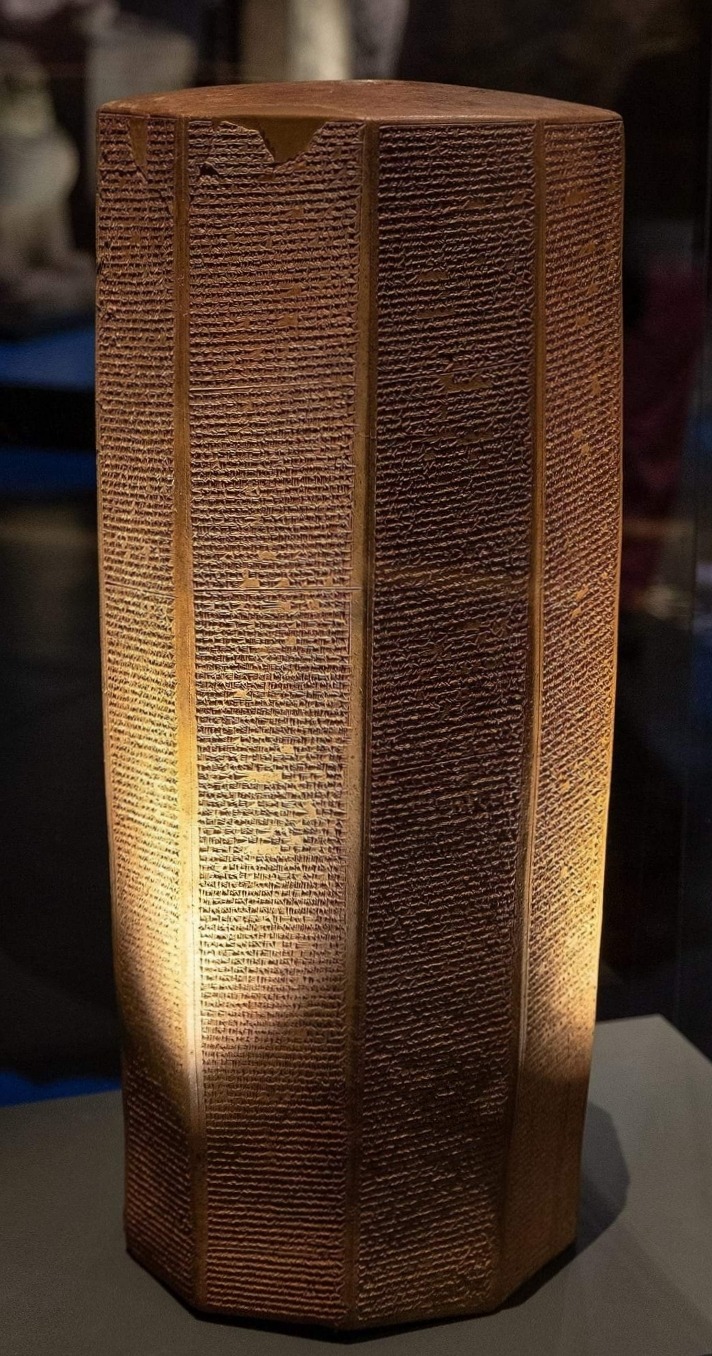
Rassam Cylinder, a ten-sided clay cylinder that was created in c. 643 BC, during the reign of King Ashurbanipal (c. 685 BC - 631 BC) who ruled the Neo-Assyrian Empire from 669 - 631 BC.
It was discovered in the ancient Assyrian city of Nineveh, near Mosul, present-day Iraq, by Hormuzd Rassam (3 October 1826 - 16 September 1910) in 1854.
In over 1,300 lines of cuneiform text, the cylinder records nine military campaigns of Ashurbanipal, including his wars with Egypt, Elam and his brother, Shamash-shum-ukin.
It also records his accession to the throne and his restoration of the Palace of Sennacherib.
The cylinder is the most complete chronicle on the life of Ashurbanipal.
There are some extracts from the cylinder below:
"I am Ashurbanipal, offspring of Ashur and Bêlit, the oldest prince of the royal harem, whose name Ashur and Sin, the lord of the tiara, have named for the kingship from earliest (lit., distant) days, whom they formed in his mother's womb, for the rulership of Assyria; whom Shamash, Adad and Ishtar, by their unalterable (lit., established) decree, have ordered to exercise sovereignty.
Esarhaddon, king of Assyria, the father who begot me, respected the word of Ashur and Bêlit-ilê (the Lady of the Gods), his tutelary (divinities), when they gave the command that I should exercise sovereignty.
In the month of Airu, in the month of Ea, the lord of mankind, the twelfth day, an auspicious day, the feast day of Gula, at the sublime command which Ashur, Bêlit, Sin, Shamash, Adad, Bêl, Nabû, Ishtar of Nineveh, Queen of Kidmuri, Ishtar of Arbela, Urta, Nergal, Nusku, uttered, he gathered together the people of Assyria, great and small, from the upper to (lit., and) lower sea.
That they would accept (lit., guard) my crown princeship, and later my kingship, he made them take an oath by the great gods, and so he strengthened the bonds (between them and me)....
By the order of the great gods, whose names I called upon, extolling their glory, who commanded that I should exercise sovereignty, assigned me the task of adorning their sanctuaries, assailed my opponents on my behalf, slew my enemies, the valiant hero, beloved of Ashur and Ishtar, scion of royalty, am I.
Egyptian Campaign:
"In my first campaign I marched against Magan, Meluhha, Taharqa, king of Egypt and Ethiopia, whom Esarhaddon, king of Assyria, the father who begot me, had defeated, and whose land he brought under his sway.
This same Taharqa forgot the might of Ashur, Ishtar and the other great gods, my lords, and put his trust upon his own power.
He turned against the kings and regents whom my own father had appointed in Egypt.
He entered and took residence in Memphis, the city which my own father had conquered and incorporated into Assyrian territory.
A swift courier came to Nineveh and reported to me.
At these deeds, my heart became enraged, my soul cried out. I raised my hands in prayer to Ashur and the Assyrian Ishtar.
I mustered my mighty forces, which Ashur and Ishtar had placed into my hands. Against Egypt and Ethiopia, I directed the march."
Rassam Cylinder records the reign of Ashurbanipal until c. 645 BC.
The latter years of his reign are poorly recorded, probably due to the fact that the Neo-Assyrian Empire was plagued with troubles.
One of Ashurbanipal's last known inscription reads:
"I cannot do away with the strife in my country and the dissensions in my family; disturbing scandals oppress me always.
Illness of mind and flesh bow me down; with cries of woe I bring my days to an end.
On the day of the city god, the day of the festival, I am wretched; death is seizing hold upon me, and bears me down..."
Rassam Cylinder is currently on display in the British Museum.
A truly remarkable, yet biased, insight into the reign of Ashurbanipal and the world in which he lived.
📷: © Anthony Huan
#Rassam Cylinder#King Ashurbanipal#Neo-Assyrian Empire#Nineveh#Hormuzd Rassam#clay cylinder#cuneiform text#Palace of Sennacherib#British Museum#Assyria#ancient civilizations#Iraq#assyriology#military campaigns#cuneiform cylinder#cuneiform#writing systems
55 notes
·
View notes
Text
mutable unchoosing, muted
after a few minutes of hurting my body again, The Tower spoke unto me "Begat, or Begot, What is Tense?" and i had a heaven shaped whole right in my head where god scrambled my thoughts and nibbled at my cognitive ability (Or that is what I'm told cauze it goes Zip Zap Zzzzt Electricity Hates You)
maybe i'm falling to my old habits, I couldn't tell you what is wrong or how I feel I don't really know or Understand
he listens with his mouth, it's sun intensity staring through words spoken
Look at me like how you do ice cream for they all scream "Laughter and Irresponsible" corpsed up in this long term hyperbolic chamber we meet and we argue a bit and then you say you'll tell your friends about your internet conversation and how stupid i am when I was still asking about your first point and then someone will say moving goalposts, so i move the goalie but I'm not good at Football Manager 2024
it's true, i cry a little bit sometimes when I remind myself snow only falls down cause of gravity, there's always some mathematics behind a fat ass fibonacci or pythogorean, I'm not picky.
Aristotle once said "For the Acitivity of the Mind is Life" so dumb people don't get to live and I think i'm one of those maybe it's clever to not say much in times of death, when your family is huddled around the bed of grandma, all tears a towel tucked under ol' grandma's chin so her jaw didn't dislocate but I remember when she was dying very well cause through the wall I heard her crying whimpering "Take me home, I want to go home, Please let me go home".
11 notes
·
View notes
Text









Now you've got something to die for....
#jesuslovesyou ? #religionisamentalillness #capitalism #capitalismisthevirus #eekhumans #stereotypes #begots #questioneverything #cliches #smashpatriarchy #thinkitsnotillegalyet #yet #humansarethevirus #dailyblasphemy #religionabsurdity #idgaf #thebeautifulpeople #youdisgustme #yestospirituality #notoreligions #thinkthinkthink #respect #empathy #moneymakestheworldgoround #moneymakestheworldgonuts #equality #prolife
X
Now you've got something to die for
Infidel
Imperial
Lust for blood, a blind crusade
Apocalyptic, we count the days
Bombs to set the people free
Blood to feed the dollar tree
Flags for coffins on the screen
Oil for the machine
Army of liberation
Gunpoint indoctrination
The fires of sedition
Fulfill the prophecy
Now you've got something to die for
Now you've got something to die for
Send the children to the fire
Sons and daughters stack the pyre
Stoke the flame of the empire
Live to lie another day
Face of hypocrisy
Raping democracy
Apocalyptic
We count the days
Oh
We'll never get out of this hole
Until we've dug our own grave
And drug the rest down with us
The burning home of the brave
Burn
Now you've got something to die for
Now you've got something to die
For
Now You've Got Something to Die For by Lamb of God
Spotify

#Now you've got something to die for#religion is a mental illness#x-heesy#my art#artists on tumblr#agnostic#atheism#religion#4/2025#🐰#fucking favorite#lamb of god#death metal#memes#smash patriarchy#cheesus Crise#Daily blasphemy#now playing#android art#glitches#our whole system is very very wrong 😑#digital art#music and art#contemporaryart#anti capitalism
8 notes
·
View notes
Text

detail of The Coronation of the Virgin with the Holy Trinity, circa 1400
Hail, full of grace, the Lord is with thee. Not only is there with thee God the Son, whom thou dost clothe with thy flesh, but also God the Holy Spirit, of whom thou dost conceive, and God the Father, who begot Him who is to be thy Son. The Father is with thee who makes His Son to be thine; the Son is with thee who institutes with thee a wondrous Sacrament, and yet preserves the seal of thy virginity. The Holy Spirit is with thee, and with the Father and the Son He sanctifies thy pure womb. The Lord, therefore, is with thee. Blessed art thou among women.
Saint Bernard of Clairvaux (Missus Est, Sermon 3)
#Christianity#Catholicism#Hail Mary#Virgin Mary#Holy Trinity#God the Father#Logos#Jesus Christ#Incarnation#Holy Spirit#virgin birth#Bernard of Clairvaux
10 notes
·
View notes